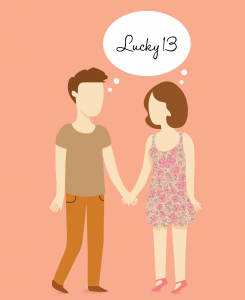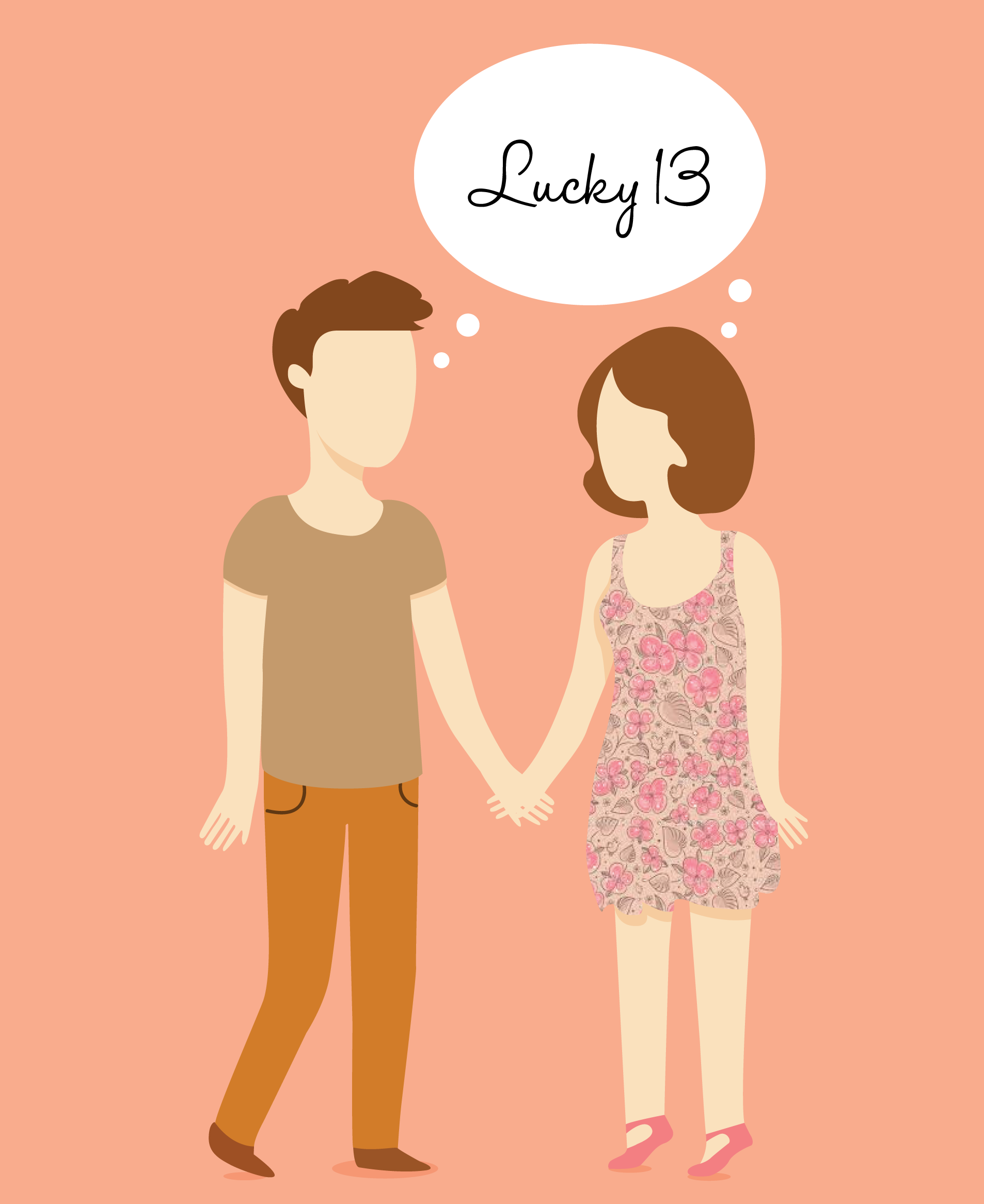
All the single folks, listen up! Valentine’s Day is around the corner and it’s that time of year again for matchmaking!
Now, now, don’t be pressured, this is not a sappy relationship advice article. Couples, exes and lovers should read along too. You might laugh, get a little infuriated or scream blasphemy. This study involves the notorious little number 13.
In Wired Magazine’s December issue, informatics and cognitive science professor at the University of Indiana Peter Todd answered the mind-boggling question of how you know if you’ve found the perfect partner.
Todd figured out a theory based on a study he did on dating and relationships where “an active dater will go on numerous dates a year, and will probably have a few relationships under his or her belt by the time they hit 30.” His conclusion was that lucky number 13 is what you should be paying attention to; 13 as in 13 relationships, whether they were successful or not.
He explains that “if you’ve dated fewer than 12 people, feel free to keep looking (and dating). If you’ve dated, say, 30 people, you’re probably being too picky.”
A little outrageous, isn’t it? I decided to put this theory to the test and see if this actually makes sense, so I did a little investigating and asked Concordia students what they thought about the theory.
“It sounds like it’s possible. I don’t think your first relationship is the one that works or that you find love,,” said Concordia student Lucy Shilton. “Sometimes, you go back to someone [you’ve went out with] before, and that happens a lot. ”
“I don’t think that love can be defined by a mathematical equation,” said student Cassandra Santilli-Giza. “What is his definition of a relationship because some people have different definitions of what that may be. It may be in their head, it may be on paper and some people don’t even believe in marriage; so therefore what is a relationship? You have to define that.”
“It’s funny because I’m taking a sociology class and anytime when you apply a scientific theory to human things, I think you’re setting yourself up for failure,” said another student, Conor Jones.
“There are people that reach eight and they start getting scared that they’re not going to be in another relationship. I think 12 is a little extreme. I don’t know, the science of human beings is full of potholes.”
We asked psychologist Dale Robinson, the manager for Counseling and Psychological Services at Concordia’s Counseling and Development office. She agrees with what the students have said.
“Is there such a thing as a magic number? No. What’s interesting about that article is that it’s trying to take something very complex like love and relationships and boil it down to something quantifiable.”
Robinson adds that there are many more factors taken into account such as personality, values and a deeper understanding of one’s self. “I don’t think there’s a ‘one-size-fits-all’ [approach], and therefore I don’t think there’s a number that you have to aim for in terms of finding your true love. I would say more it would stem from finding your true self, and knowing what you truly want, and then really being honest with yourself when you find that or when don’t find that.”
What’s fascinating is that everyone unanimously agreed that when it comes to relationships, figures don’t really matter and that one’s own feelings and principles matter more.
Robinson concludes that we’re simply human, and that love is more than just ‘trial and error’. “It’s not simply just dating enough people. I think self-awareness is a key, your maturity is a key. I don’t think the only way to learn is through trial and error, it works in a lab with rats, but we’re human beings. We’re able to think and reason and know what our priorities are and act accordingly. Humans are a lot more complicated like that.”
The message is clear among those who responded, that everyone is different and it reflects the complexity of human beings whenever relationships come into play.




